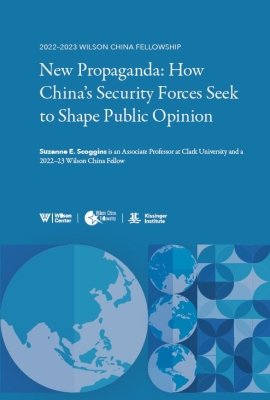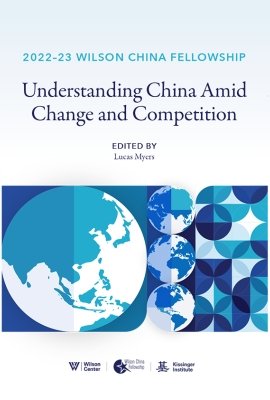Suzanne Scoggins
2022-23 Wilson China Fellow
Professional Affiliation
Associate Professor of Political Science and Director of Asian Studies, Clark University
Expert Bio
Suzanne E. Scoggins is Associate Professor of Political Science and Director of Asian Studies at Clark University. Her first book, Policing China: Street-Level Cops in the Shadow of Protest (2021, Cornell University Press and Columbia Weatherhead Series) examines the paradox of China’s self-projection of a strong security state while having a weak police bureaucracy. Dr. Scoggins’ academic articles on policing in reform era China have appeared in Comparative Politics, the China Quarterly, and Europe-Asia Studies, among others. Her research and commentary on policing and Chinese politics have also appeared in outlets such as The Economist, South China Morning Post, The New York Times, and East Asia Forum. Dr. Scoggins holds a PhD in political science from the University of California, Berkeley. Prior to joining the faculty at Clark, she was a predoctoral fellow at Stanford University’s Center on Democracy, Development and the Rule of Law.
Wilson Center Project
New Propaganda: How China’s Security Forces Shape Public Opinion on National Security Issues and Beyond
Project Summary
For over a decade, Chinese security forces have invested heavily in new forms of propaganda. From slick TV specials to social media content creation, the state’s efforts are widespread and well-funded. But in no area have new propaganda efforts been more prolific—or entertaining—than on douyin (TikTok), a popular short video sharing app. Why expend valuable and in many cases limited resources when the ability of propaganda to persuade domestic audiences is limited at best? Suzanne Scoggins argues that new types of propaganda on douyin are more integrated and persuasive than traditional “hard” propaganda. Using machine learning and natural language processing to understand content posted to douyin accounts held by security forces, her research typologizes propaganda efforts and analyzes public comments to videos of key accounts, providing new insight into how new propaganda is created and received across time.
Insight & Analysis by Suzanne Scoggins
- Publication
New Propaganda: How China’s Security Forces Seek to Shape Public Opinion

- Publication
Executive Summary - 2022-23 Wilson China Fellowship
- By
- Matthew Erie,
- Kyle Jaros,
- Mao Lin,
- and 12 more

- Publication
2022-23 Wilson China Fellowship: Understanding China Amid Change and Competition

- Past event
- Strategic Competition
Wilson China Fellowship Conference 2023



